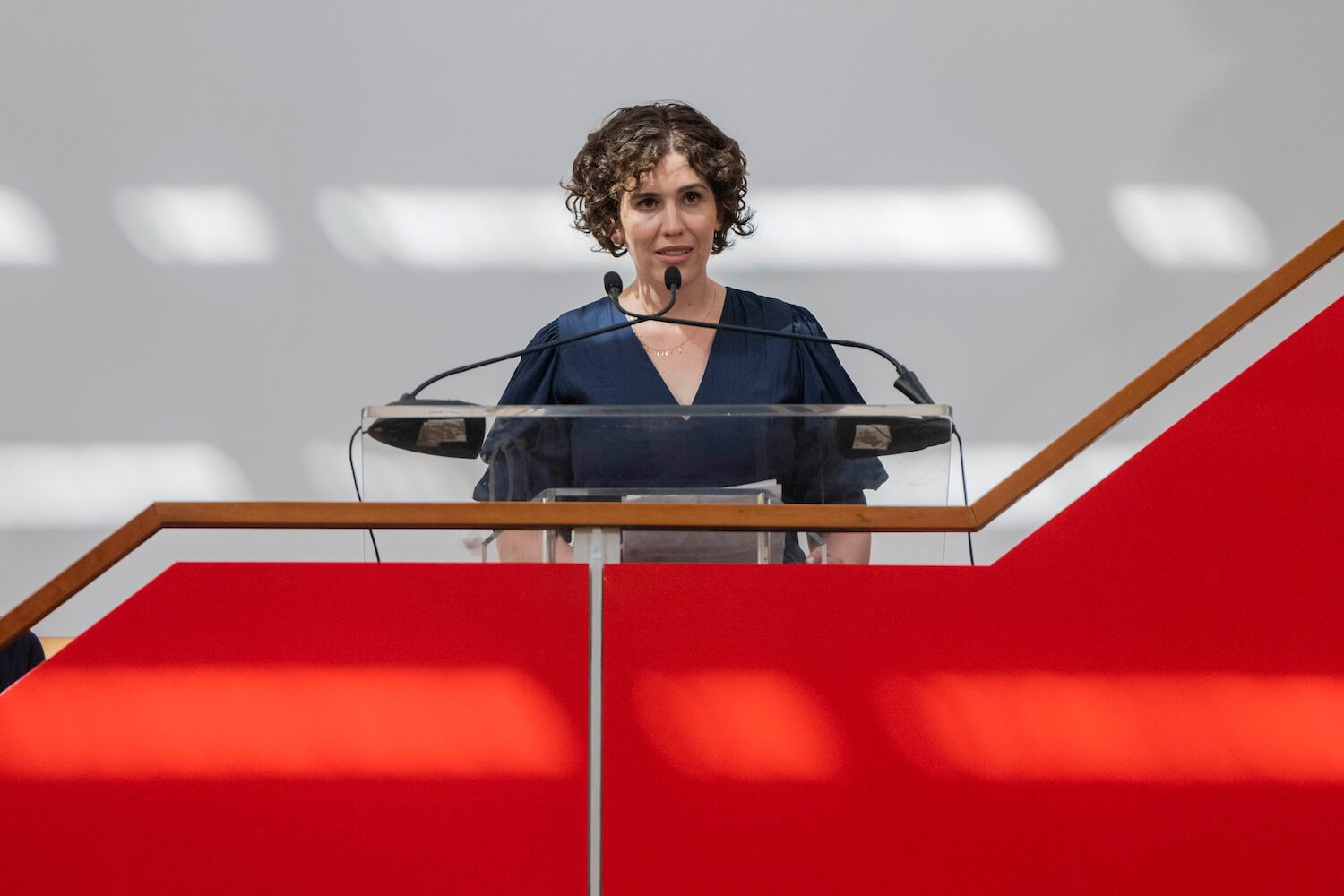Poynter announced Tuesday the winners of its inaugural journalism contest, continuing a tradition that was most recently headed by the News Leaders Association.
The Poynter Journalism Prizes saw over 525 entries from more than 300 news organizations and individual journalists. The contest was open to work across all platforms, including digital and broadcast, and featured 10 categories focused on different aspects of writing, reporting and leadership. Winners will receive a cash prize of $1,000 or $2,500, depending on the category.
“The judges were faced with a problem that the journalism industry can be truly proud of — it was really hard to select winners because there were so many high-caliber choices,” Poynter president Neil Brown said. “The Poynter Journalism Prizes honors great journalism that makes a difference and we find it in all kinds of news organizations and in a diverse range of communities. That’s good for society and it bodes well for the media business.”
This year’s contest featured one new category honoring short-form journalism. Named after retired Poynter faculty member Roy Peter Clark, the Clark Prize was awarded to Dallas Morning News public safety reporter Maggie Prosser for a 425-word story about a mother who lost her daughter to fentanyl poisoning.
The Morning News was also named a finalist in the writing excellence category for its work covering the Allen, Texas, mall shooting. Two other outlets, The Washington Post and The Boston Globe, made multiple showings among this year’s winners and finalists. The Post was named a finalist in two categories and won the social justice reporting category for an investigation into the Smithsonian’s holdings of human remains. The Globe was named a finalist in four categories and won the column writing category for metro columnist Yvonne Abraham’s work covering the city’s homeless. (Stat, which is owned by the same parent company as the Globe, also won a reporting category.)
Here are the 2024 Poynter Journalism Prize winners:
The Batten Medal
Awarded to Casey Ross and Bob Herman of Stat for Denied by AI: Consequences for Sick and Vulnerable Americans, a series of stories about the use of algorithms to deny care to ill patients in pursuit of higher profits. The medal recognizes exceptional journalism that makes a difference to the lives of people and their communities.
Finalists
- The staff of The Boston Globe for Nightmare in Mission Hill
- The staff of TMJ4 News for Project: Drive Safer
The Frank A. Blethen Award for Local Accountability Reporting
Awarded to Jeremy Rogalski, John Gibson and Jennifer Cobb of KHOU-11 TV for Coffee City Police, an investigation into the Coffee City Texas Police Department that found that in a city of almost 250 people, there were 50 police officers. The award recognizes outstanding work done by a news organization that holds local authorities accountable for actions (or inaction).
Finalists
- Ted Sherman of NJ Advance Media for Death at Berth 18
- The staff of The Villages Daily Sun for The Untold Stories of Ian’s Immense Death Toll
The Dori J. Maynard Justice Award
Awarded to Nicole Dungca, Claire Healy and Andrew Ba Tran of The Washington Post for The Collection, an investigation into the Smithsonian’s collection of human remains, many of which belonged to Black and Indigenous people. The award honors social justice reporting.
Finalists
- The staff of The Boston Globe for Nightmare in Mission Hill
- The staff of Retro Report for Generations Stolen
The Deborah Howell Award for Writing Excellence
Awarded to Megan Cassidy and Gabrielle Lurie of the San Francisco Chronicle for an 18-month investigation that explored how migrants from Honduras’s Siria Valley provide the labor that fuels San Francisco’s drug crisis. The award recognizes distinguished achievement in writing in any medium.
Finalists
- The staff of The Dallas Morning News for its coverage of the Allen shooting.
- Wright Thompson of ESPN for Joe Montana Was Here
The First Amendment Award
Awarded to the staff of the Malheur Enterprise for reporting about Malheur County’s lack of transparency and the effect and importance of the paper’s lawsuit against the county to enforce state public records law. The award is given to the best example of protecting or advancing freedom of information principles, and/or overcoming significant resistance to the application of the First Amendment.
Finalists
- Jim Baumbach, Joie Tyrrell and Dandan Zou of Newsday for Teacher Misconduct on Long Island.
- Hannah Natanson of The Washington Post for The School Book Wars
The Burl Osborne Editorial and Opinion Award
Awarded to the San Antonio Express-News for Political crisis at the border, a series that looks at how barbed wire is a cruel and ineffective tactic to keep people from entering the U.S. The award recognizes excellence in editorial writing that has made an impact on behalf of a community, resulting in change for the better.
Finalists
- The Boston Globe for editorials addressing the Massachusetts housing crisis
- Isadora Rangel of the Miami Herald for Miami Dysfunction
The Mike Royko Award for Commentary and Column Writing
Awarded to Yvonne Abraham of The Boston Globe for commentary writing about Boston’s homeless and the myriad issues they face. The award recognizes excellence in writing by an individual expressing a personal point of view.
Finalists
- Anita Chabria of the Los Angeles Times for her columns
- Connie Wang and Connie Aramaki of The New York Times for Generation Connie
The Punch Sulzberger Innovator of Year
Awarded to Adam Clark of New Jersey Advance Media for The Oral History of Wawa, a story of how a convenience store became a cultural phenomenon. The award honors a journalist or organization that excels in new ways of executing the craft of journalism and whose work is a bold new approach.
Finalists
- Opinion designer Heather Hopp-Bruce of The Boston Globe
- Senior editor for visual storytelling Monica Ulmanu of The Washington Post
The Robert G. McGruder Diversity Award
Awarded to the Mississippi Free Press for building its newsroom with community and its diversity in mind. The award honors the accomplishments of media professionals who encourage diversity in hiring and coverage.
The Roy Peter Clark Prize for Excellence in Short Writing
Awarded to Maggie Prosser of The Dallas Morning News for Deadly Fake: ‘Something of hers,’ a 425-word story about a grieving mother who lost her daughter to fentanyl poisoning. The prize honors compelling journalistic writing of less than 800 words in any medium.
Finalist
- Kristin Schwab of Marketplace for ‘Tell me how we work and spend. You have four minutes.’
Poynter hosted the prizes for the first time this year after the NLA decided last year to transfer its awards program to the Institute. The NLA, a nonprofit organization dedicated to newsroom leadership, diversity and First Amendment issues, had run a journalism contest since 2019. But financial challenges forced the association’s board to vote in October to dissolve the organization and transfer its assets — including the NLA Awards — to other nonprofit journalism groups.
The NLA Awards got its start after the American Society of News Editors and the Associated Press Media Editors merged in 2019 to form the NLA. Previously, the ASNE had run its own journalism competition. Most of the Poynter Prize Journalism categories come from the ASNE Distinguished Writing Awards, which began in 1979.
Though this is the first year Poynter has run the contest, it used to host the judging for the ASNE awards and published a book each year compiling winning entries. The ASNE awards were also inspired by Eugene Patterson, who served as ASNE president and Poynter’s chairman.







